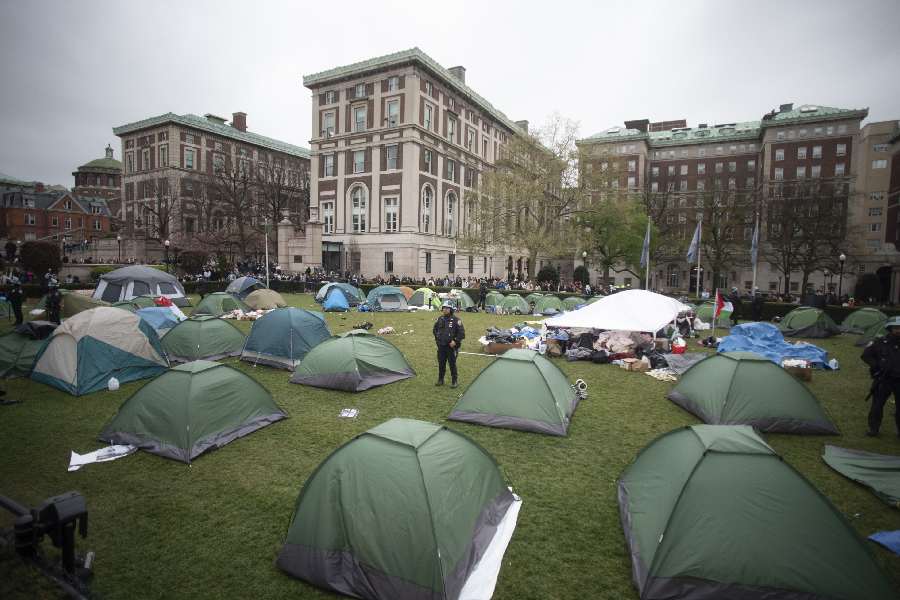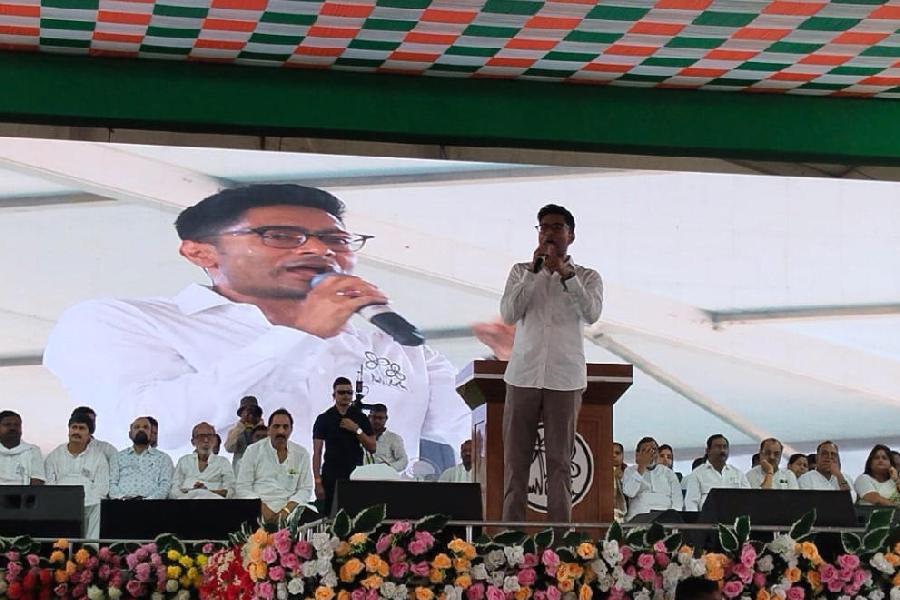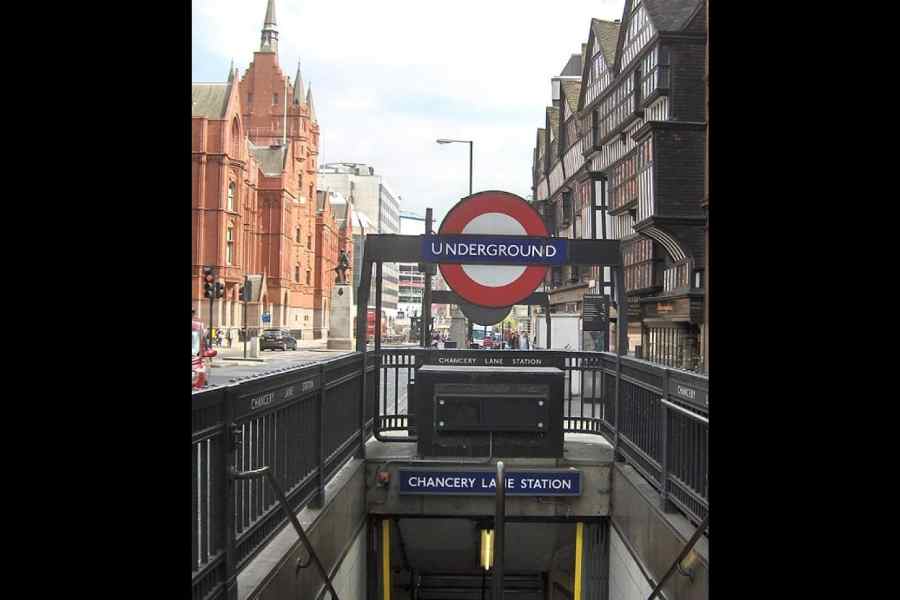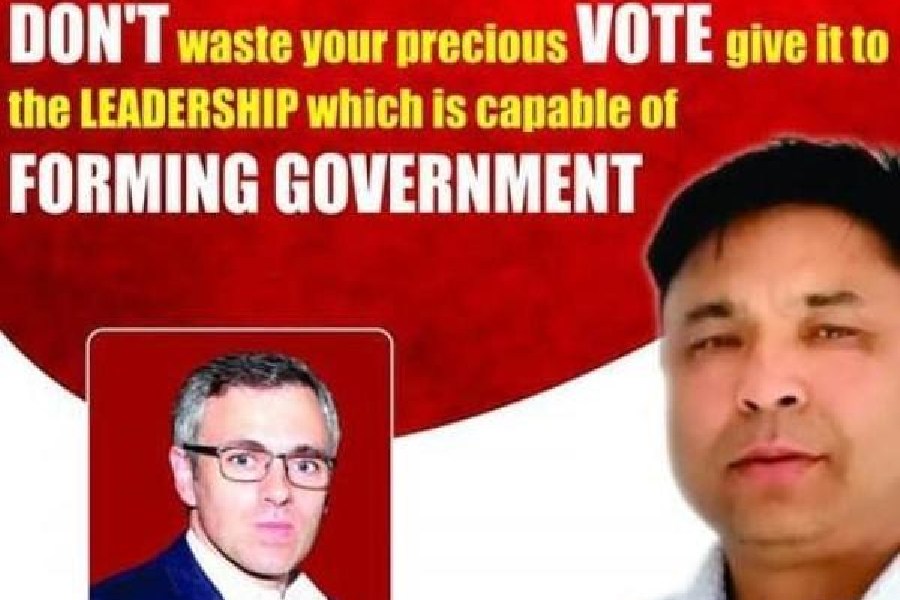For about a day and a half, pro-Palestinian activists at Columbia University set up what they called a “Liberated Zone,” a temporary community with the spirit and values they wished existed on campus always.
It was an impromptu tent village, with more than 50 tents, pitched on a large green lawn just outside the school’s imposing main library. It had a gathering area under a white awning heaped with supplies donated by fellow students. A red spray-painted sign announced its name: “Gaza Solidarity Encampment.”
For those hours, living and gathering in the encampment felt purposeful and important, the activists said. A film screening was held after midnight; there was a teach-in. Hundreds of students marched around the encampment to show support.
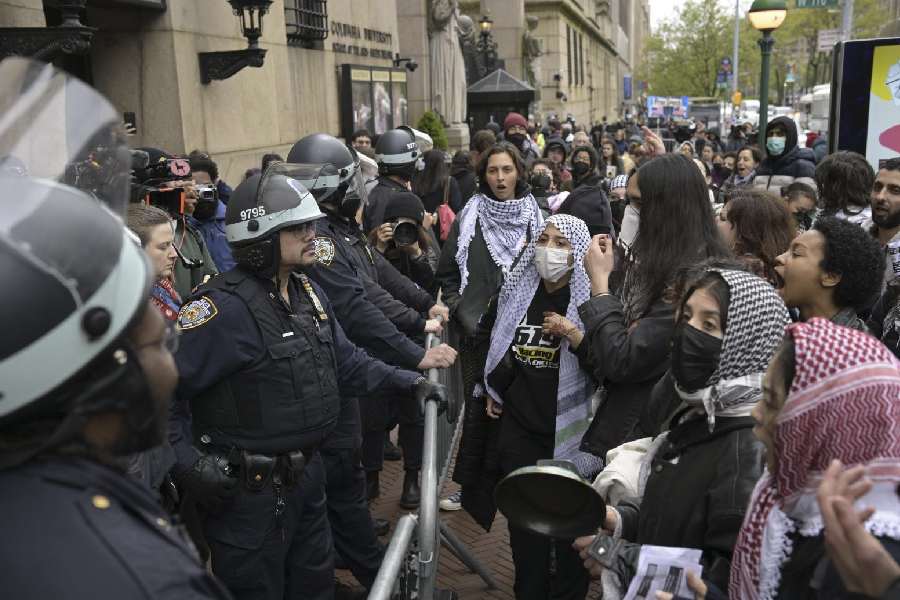
Pro-Palestinian protesters and police officers outside of Columbia University in New York, on Thursday afternoon, April 18, 2024. Karsten Moran/The New York Times
“It really feels like we’ve taken over the university and made it into the vision that students want it to be, and not what these bigwigs who want to encroach on academic freedom want it to be,” said Maryam Alwan, one of the organizers.
But for Columbia University, the encampment was anything but an Eden. The university’s president, Nemat Shafik, fresh from a congressional hearing in which she had pledged to enforce the university’s rules on protests, tried to get the students to stand down. When they did not, she decided to break with a decades long norm in the university’s approach to quelling protests.
She gave the police a green light to come in.
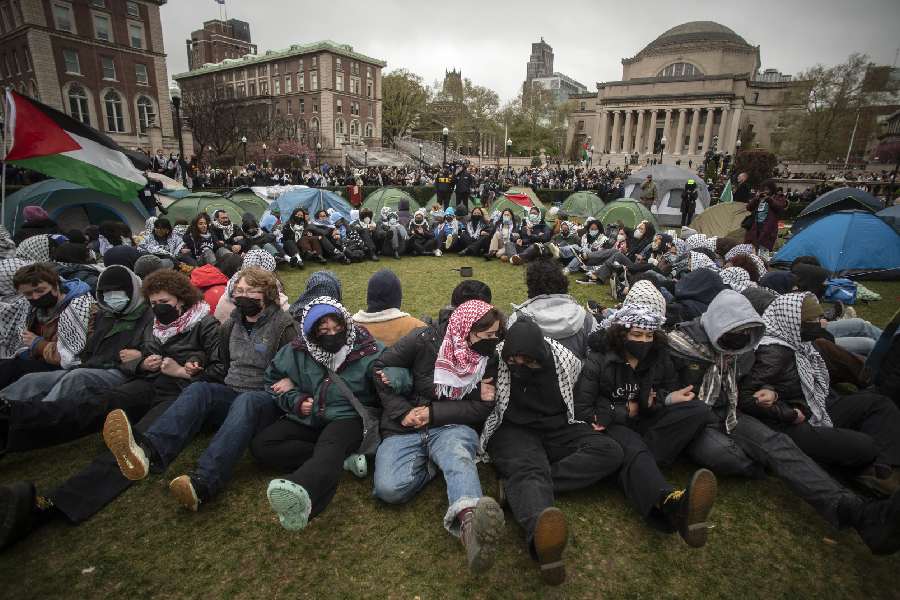
Pro-Palestinian demonstrators sit with locked arms amid their encampment on the South Lawn at Columbia University in New York, on Thursday afternoon, April 18, 2024. C.S. Muncy/The New York Times
“The current encampment violates all of the new policies, severely disrupts campus life, and creates a harassing and intimidating environment for many of our students,” she wrote in a letter to the Columbia community sent around 1:15 p.m. Thursday.
Within minutes, police officers, many in riot gear, flooded into the campus and surrounded the lawn. Inside the encampment, roughly 100 students linked arms and sat in rows. A large crowd of students and onlookers gathered. The police began to arrest the students, placing their hands into zip ties. The crowd chanted “shame on you” and “let them go.”
The protesters did not resist. They had expected they would be arrested, they said, because they had vowed not to move until Columbia divests from companies supporting Israel, something the school has repeatedly said it will not do. The students were all also suspended, the Columbia administration announced.
Many in the crowd watched, they said in interviews, with a sense of disbelief, or anger. Some students, though — those who had felt harassed by the chants and actions of the pro-Palestinian students — said they were glad that the university had finally agreed to follow its rules.
The arrested students left behind the remnants of their tent city. Under police watch, Columbia facilities workers began to clear the lawn, throwing items into large plastic bins. They poured boxes of Dunkin’ coffee, still hot, onto the ground, creating steam in the light rain. The university issued a statement saying the tents and students’ belongings had been placed in storage.
As the camp was dismantled, some onlookers dispersed, but others continued to rally. They relocated a protest to the next lawn to the west. Dozens of students hopped over a fence and formed a circle on the wet grass. “Disclose, divest, we will not stop, we will not rest,” they chanted.
Cornel West, the public intellectual and independent candidate for president, came to address the students in solidarity. He called Columbia’s response to the protesters “a colossal failure in terms of morality.”
“We know from the history of the species to stand up for truth and justice is to pay a price,” West said.
By 4 p.m., two new tents had been pitched, and the “Gaza Solidarity Encampment” sign had been resurrected and displayed again.
This article originally appeared in The New York Times.

